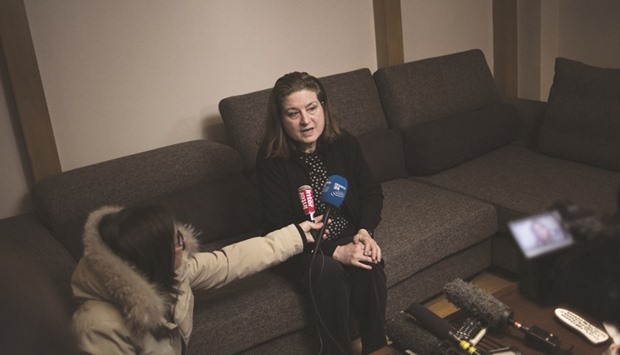A French reporter forced to leave Beijing after she criticised government policy in violence-racked Xinjiang arrived home on Friday after warning of dark days ahead for journalists working in China.
Beijing accused Ursula Gauthier, the China correspondent for France’s L’Obs news magazine, of supporting terrorism after she wrote an article questioning official comparisons between global Islamist violence and unrest in the homeland of the mainly Muslim Uighur ethnic minority.
It then refused to renew her credentials, obliging her to leave on December 31 when her visa expired.
Speaking from her Beijing home before departing, Gauthier said the future looked bleak for journalists in China.
“What happened with this small article about Xinjiang could happen with anything else,” she said. “This could be really dangerous in the future.”
France and Europe should be “concerned about what is going on here, not because it is a journalist, not only because of the freedom of press, but also because it is about China and what China is doing to its minorities, and even its majority, the problem is the same”, she added.
After landing in France, Gauthier vowed to continue writing about China and condemned Beijing over her effective expulsion.
In her story for L’Obs, Gauthier questioned China’s motives in expressing sympathy for the victims of the November 13 Paris attacks, writing that they were calculated to tie Beijing’s harsh policies in Xinjiang into the fight against global terrorism.
The veteran reporter, who has spent six years in China, suggested that violence by Uighurs against civilians in the region – where clashes have killed hundreds in recent years – was in part driven by resentment of government policies.
“I didn’t write that I supported terrorism, I never supported terrorism in my article,” she told AFP.
“I was simply explaining that the Uighurs’ anger came from somewhere, just like we can explain the origin of the anger of young Arabs who become radicalised, there are roots to it.”
Chinese media and officials strongly criticised her article, with the Communist Party-affiliated Global Times saying that it “severely distorted the reality in Xinjiang” and represented a “double standard” on terrorism.
The journalist said her home address was posted online alongside death threats from angry readers.

Gauthier: I didn’t write that I supported terrorism, I never supported terrorism in my article.
